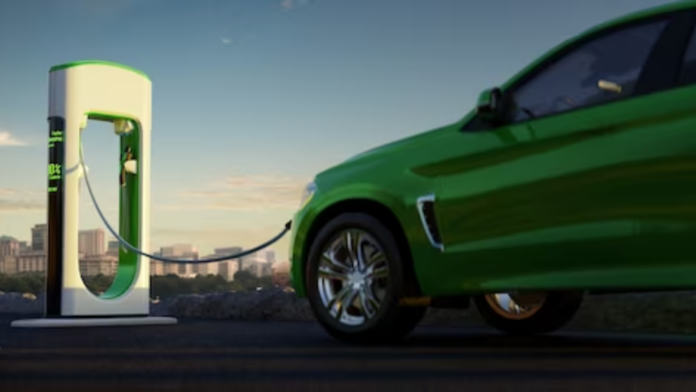In the rapidly evolving world of electric vehicles (EVs), one startup is taking center stage by aiming to streamline and optimize the relationship between EVs and their vast ecosystem. Enter Volteras, a London-based venture with a clear vision: to become the linchpin connecting EVs with chargers, home batteries, energy retailers, and more.
Despite operating discreetly for the past three years, Volteras has garnered an impressive $2.9 million in funding and secured partnerships with industry bigwigs like Mercedes, BMW, Volvo, and solar giant Enphase.
Peter Wilson, the founder and CEO of Volteras, emphasizes the challenges in sourcing data from the interconnected world of electric vehicles. “There’s a disparity in data access. Some entities get insights from the EVs, but are blind to the chargers and energy storage. Conversely, some are well-versed with charging data but are left in the dark regarding EV specifics,” he noted.
Taking a leaf out of Plaid’s playbook in the banking sector, Volteras seeks to be the seamless integrator for the EV landscape. Their revenue model? Charging Original Equipment Manufacturers (OEMs) and energy retailers for API access. However, in a world where data privacy is paramount, Volteras ensures it doesn’t commodify or distribute data to third parties.
Discussing the previous data-driven business models, Wilson elaborated, “Many companies established around 2016 revolved around marketplace setups where car data was bought and sold. But the winds are changing; a more privacy-conscious platform approach is now in vogue.”
Given the increasing regulations surrounding data privacy, such as initiatives from California’s Privacy Protection Agency, Wilson’s approach is timely. Contemporary vehicles, fitted with a myriad of sensors and cameras, gather heaps of information, including driver behavior and location specifics.
But Volteras is not merely about insights; it’s about actionable intelligence. Wilson highlighted the potential of the startup’s API by discussing its application in load balancing for energy retailers. By harnessing this feature, retailers can make informed decisions about when to charge EVs, provided customers give the green light.
Tesla, a pioneer in the EV sector, has been building its proprietary ecosystem, interlinking cars, powerwalls, and solar panels under a unified application. However, even giants have their boundaries. Tesla’s electric plan, as of now, is localized to Texas.
Drawing a distinction from the charging company, Voltera, it’s noteworthy that Volteras successfully secured $2.9 million in seed funding nearly a year ago. The list of those who have invested in this promising startup features names like Exor (which has ties with luxury car brand Ferrari and automotive conglomerate Stellantis), the venture capital firm Long Journey Ventures, and the renowned Scott Banister.
With a seed round valuing the startup close to $12 million, it’s evident that the industry sees potential in Volteras’ mission. In the realm of electric vehicles, as technologies evolve and boundaries expand, ventures like Volteras are pivotal in ensuring a cohesive, efficient, and integrated future.











![5 Bad Spending Habits [Idy On Fire]](https://investitin.com/wp-content/uploads/2018/12/maxresdefault-4-100x70.jpg)
